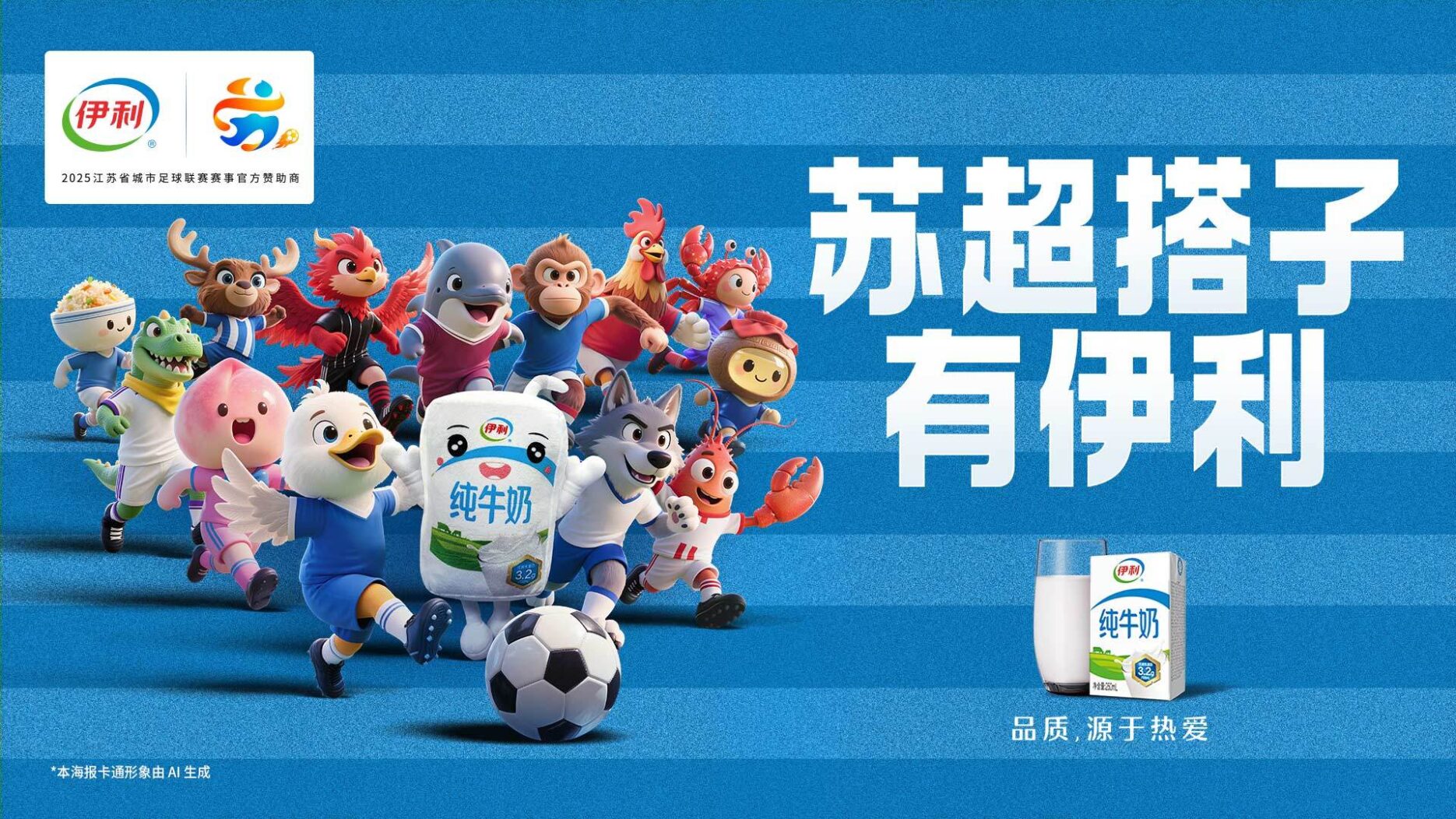Key takeaways:
- The “Su Super League”, an amateur football league in Jiangsu, went viral thanks to its memes in China, sparking a travel boom.
- Food delivery platforms JD.com, Meituan and Ele.me rode the meme wave to capitalise on the trend.
- Local governments seized the opportunity for city marketing to further build their brands.
The hottest sporting event in China at the start of summer isn’t the NBA or the UEFA Champions League, but an amateur football league in Jiangsu Province, affectionately known as “Su Super League” (苏超, Suchao). “Su” is short for Jiangsu, but coincidentally, it’s also the same character used in the Chinese name for the “Scottish Premier League”. The inaugural season of the amateur league was played between the province’s 13 cities and consisted of 13 rounds. It quickly became an online phenomenon thanks to viral memes, leading to a travel boom. Not only are the matches generating trending topics on Chinese social media, but tickets are also selling out in minutes.
It quickly became an online phenomenon thanks to viral memes, leading to a travel boom
Meme-tic sport?
The memes originated from earlier memes, derived from stereotypes about Jiangsu being “loose goods” (散装), meaning a divided province. This is because the different cities and regions in the province have very different cultures and dialects, instead of some more homogenous provinces. Early memes included a play on the Chinese sportsmanship principle of “friendship first, competition second”: “friendship number 14”, meaning it would rank below all 13 cities participating in the league. Others included a joke that the winner of the league title would become the new capital of the province, dethroning Nanjing. Another meme is about how Changzhou (常州) is gradually losing strokes in the characters of its name after losing matches, becoming “丨州” before turning into “〇州”.
Like the “village super league” in Guizhou that broke the internet last year, the Su Super League began as a grassroots amateur competition but quickly gained support from local authorities, who recognised the opportunity to boost regional travel and raise awareness of the lesser-known cities beyond Nanjing in Jiangsu.

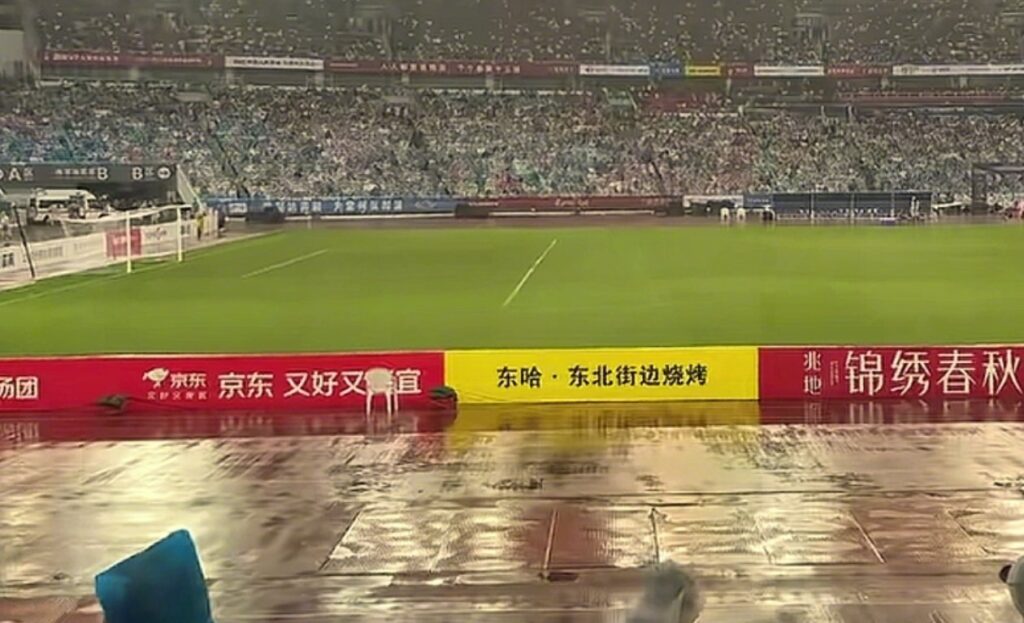
On 16 June, Meituan data showed that bookings for summer travel to Jiangsu increased by 41% year-on-year (YoY), and the weekend of 14 June saw Jiangsu become the top destination in China due to the amateur league. With the help of food delivery platforms, this raised awareness of local delicacies and boosted Jiangsu cuisine around the country. On 2 June, the day after Nanjing beat Wuxi, searches for ‘Nanjing salted duck’ were up 74% compared to the previous week, and orders were up 58%.
JD.com vs Meituan vs Ele.me
With the surge in popularity driven by both grassroots enthusiasm and local government support, the matches attracted big names in business eager to sponsor the league. At one point, there were as many as 19 sponsors shortly after it went viral.
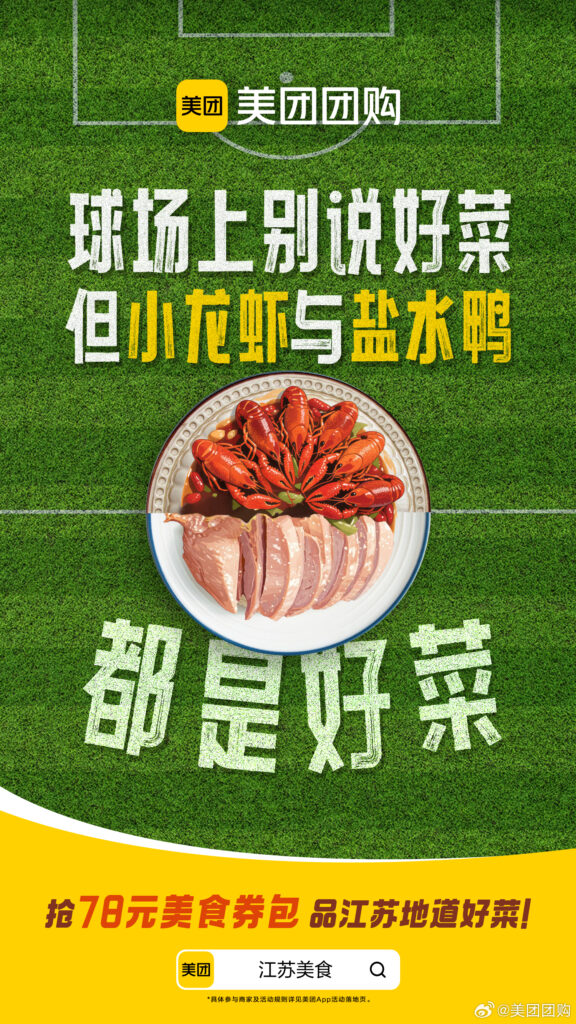
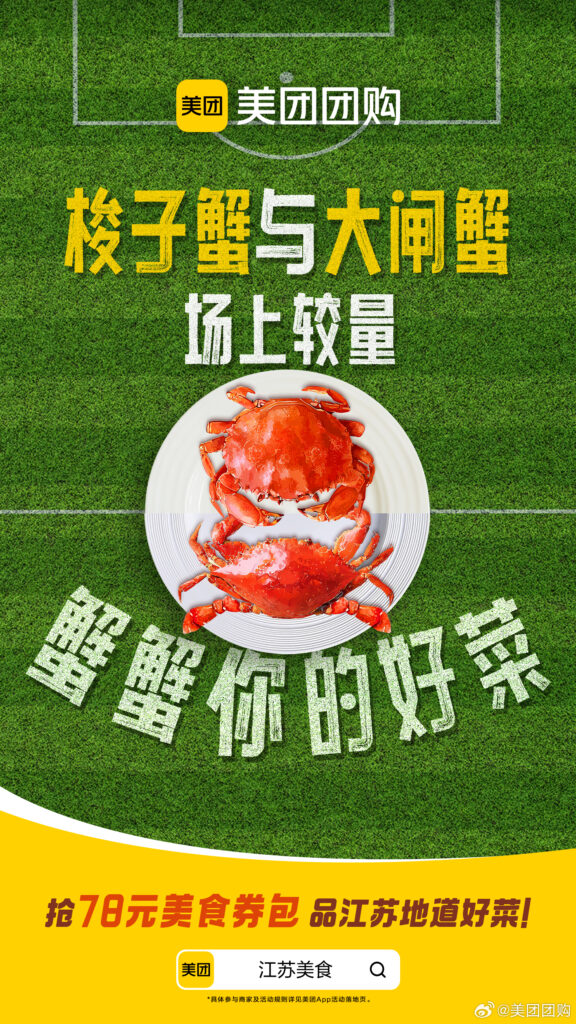
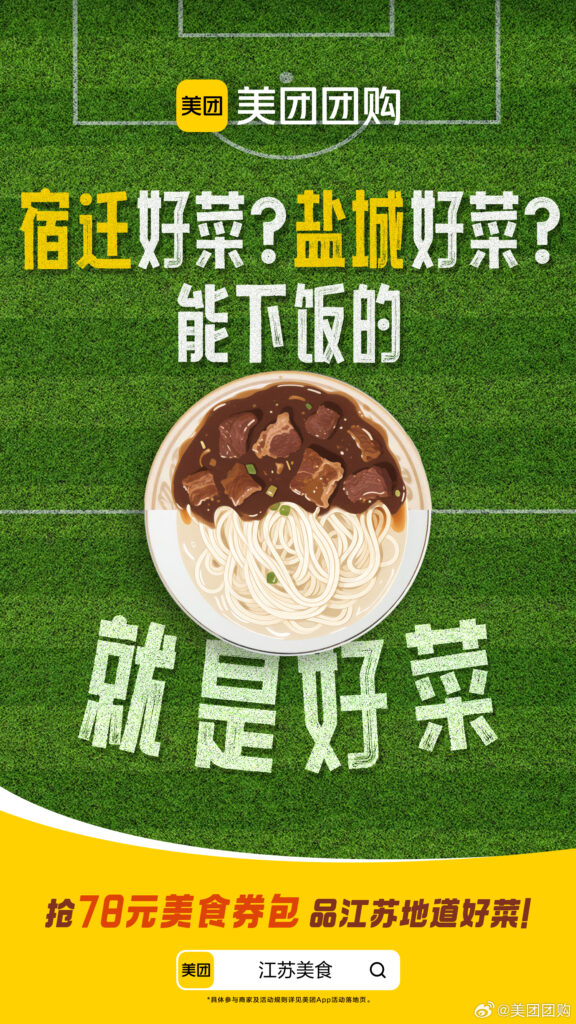
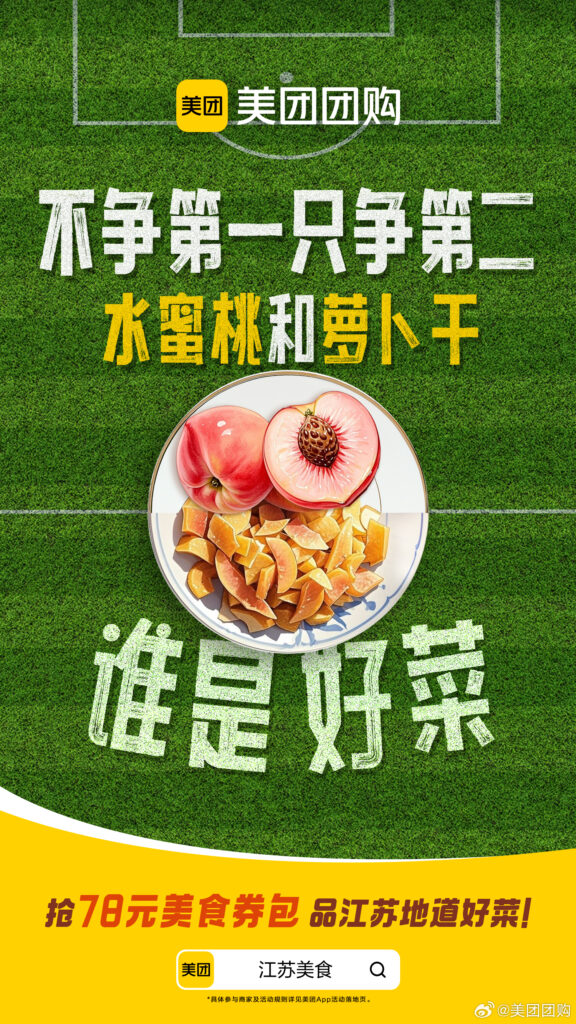
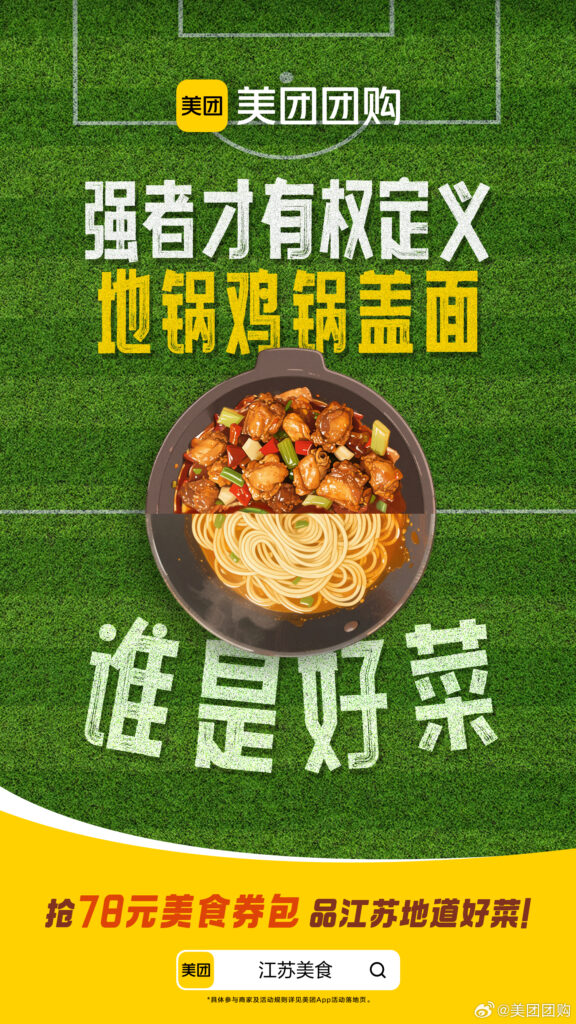
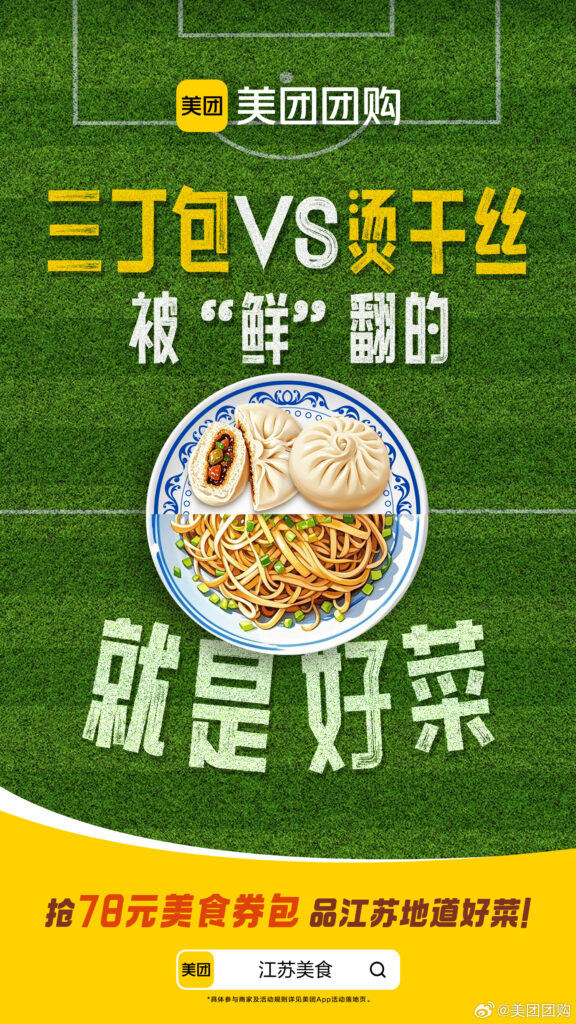
The most closely watched are the “big three” in the food delivery market, JD.com, Meituan and Ele.me. These platforms have been locked in a marketing battle since before the 618 Shopping Festival began, launching punny meme campaigns using their signature brand colours. Now they are bringing their beef to other people’s pitches.
Meituan continued its pun-driven strategy, using the colloquial expression “好菜” (hao cai, very lame), which also translates to “great dish” as its tagline. For each match, the food delivery giant pits two local delicacies against each other, creating a playful yet competitive atmosphere.
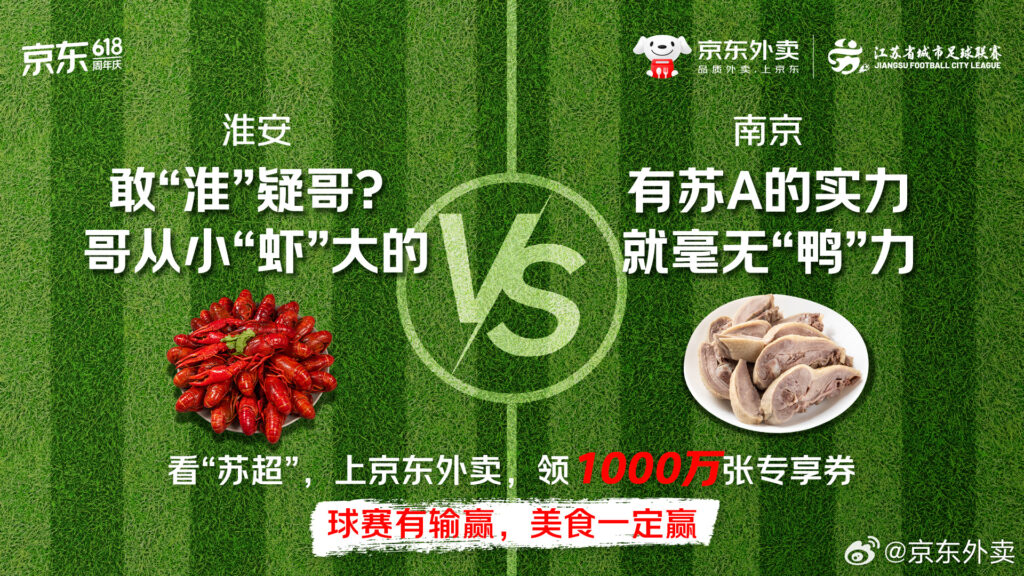
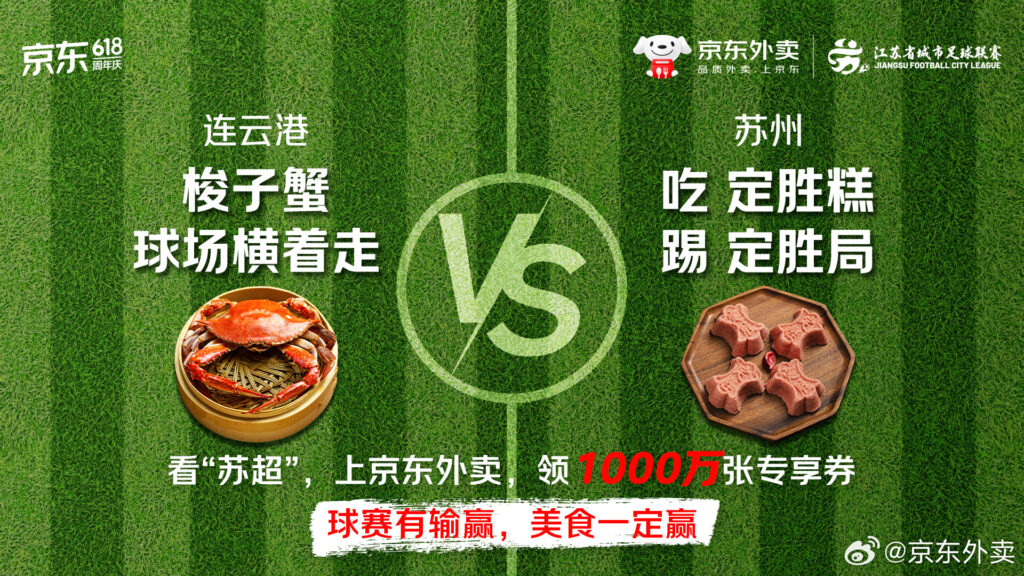
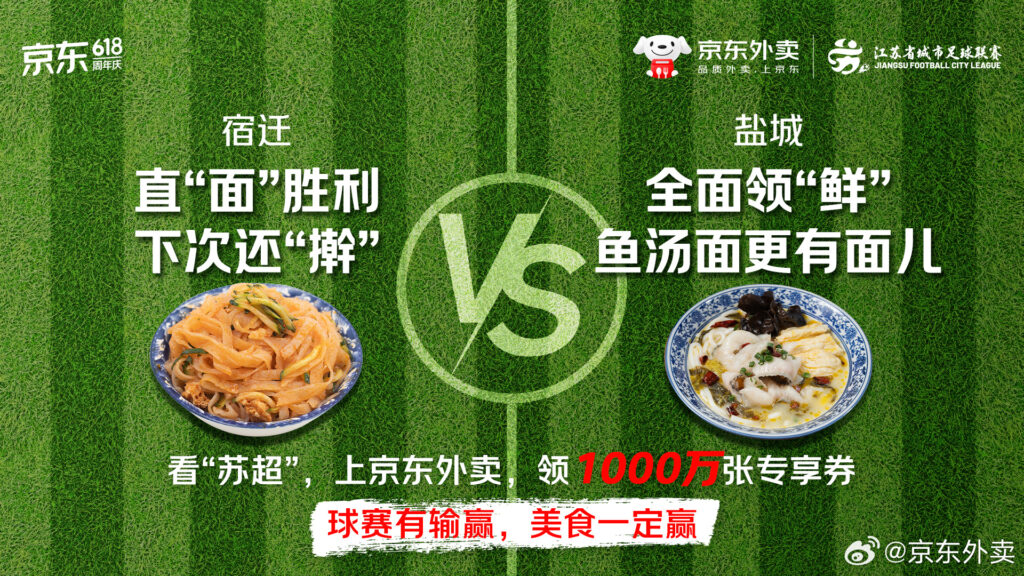
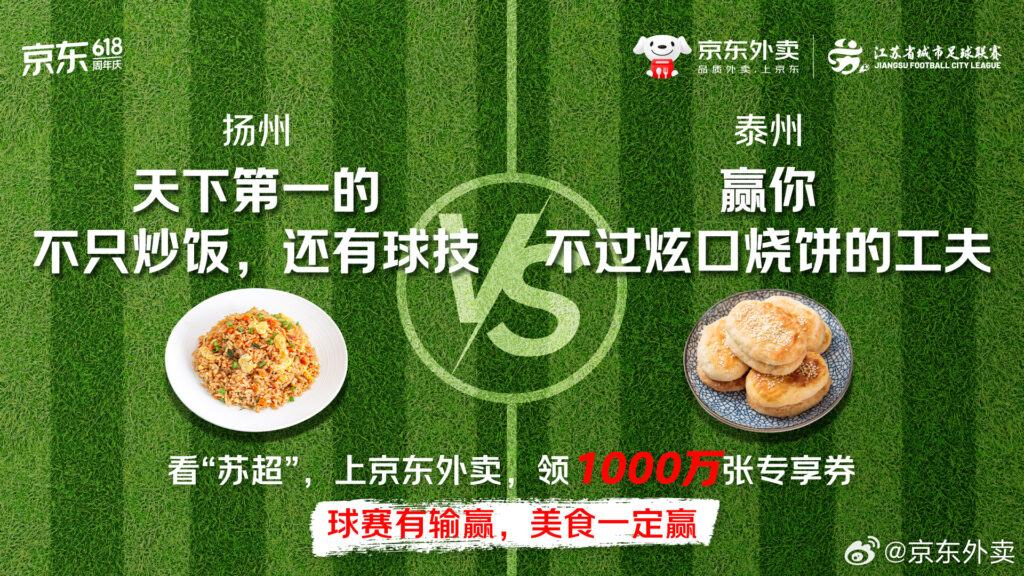
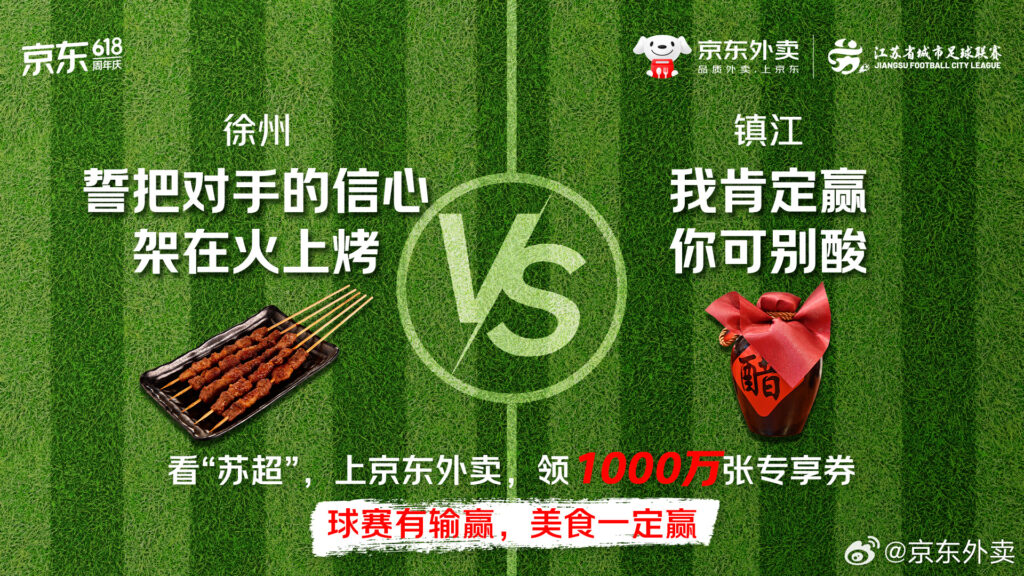
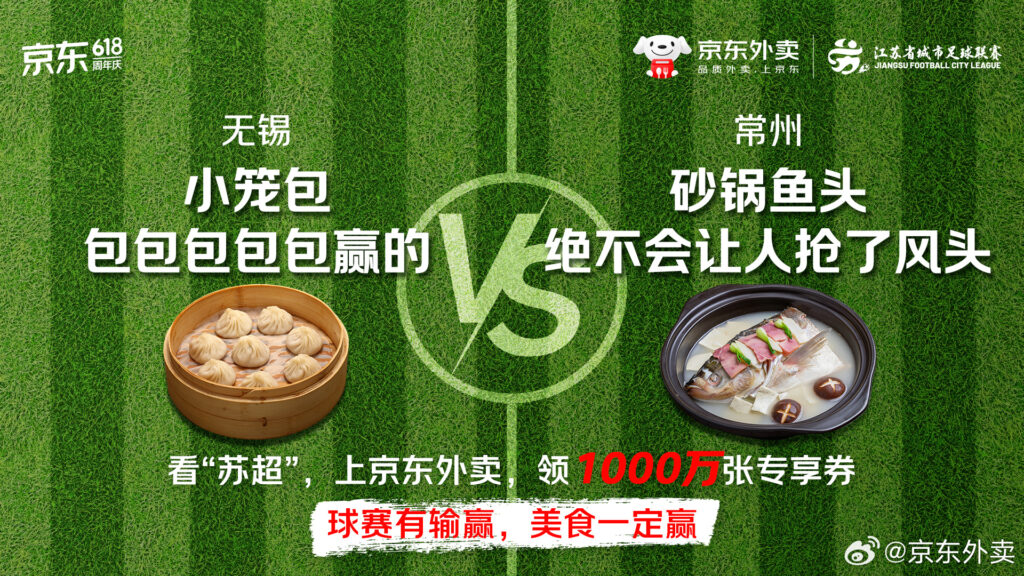
JD.com, which originates from Suqian, Jiangsu, became an official sponsor of the league and had more to play with. Not only did it launch a “support pack” with a gift card and official jerseys, but it took a less combative approach, designing a poster for each of the 13 teams. It even created a music video for its campaign.
Ele.me did not put in half as much effort as the other two brands. It only picked Nanjing, Suzhou and Wuxi for giveaways, offering 10,000 free orders in a city each time its team scored a goal.
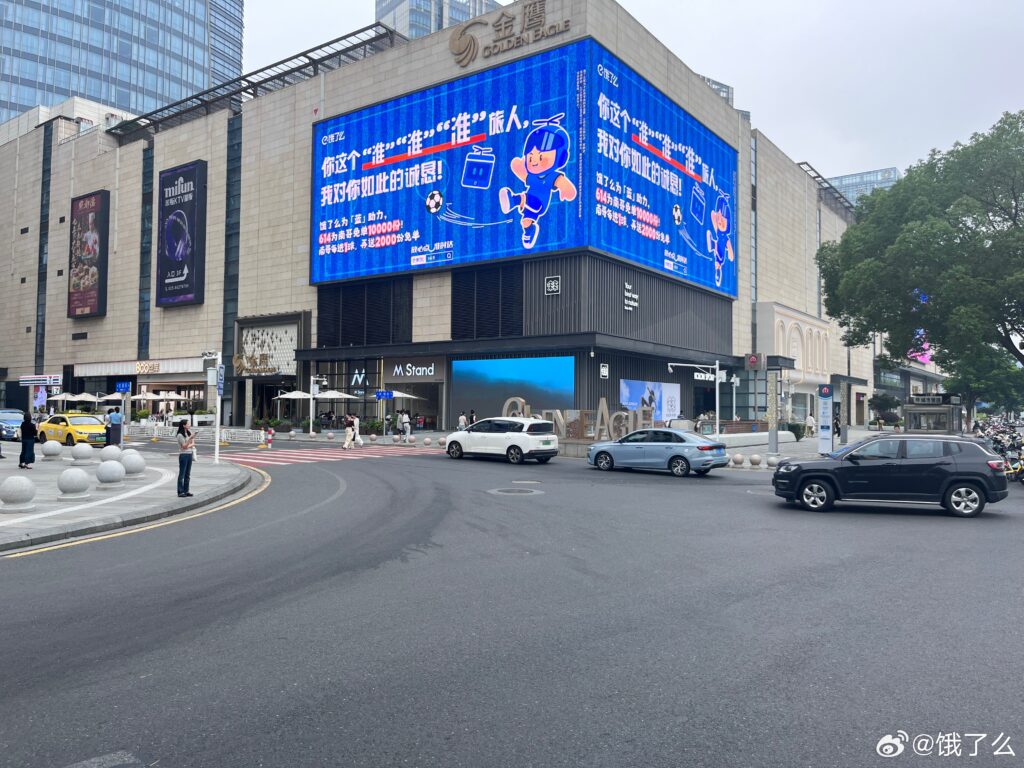
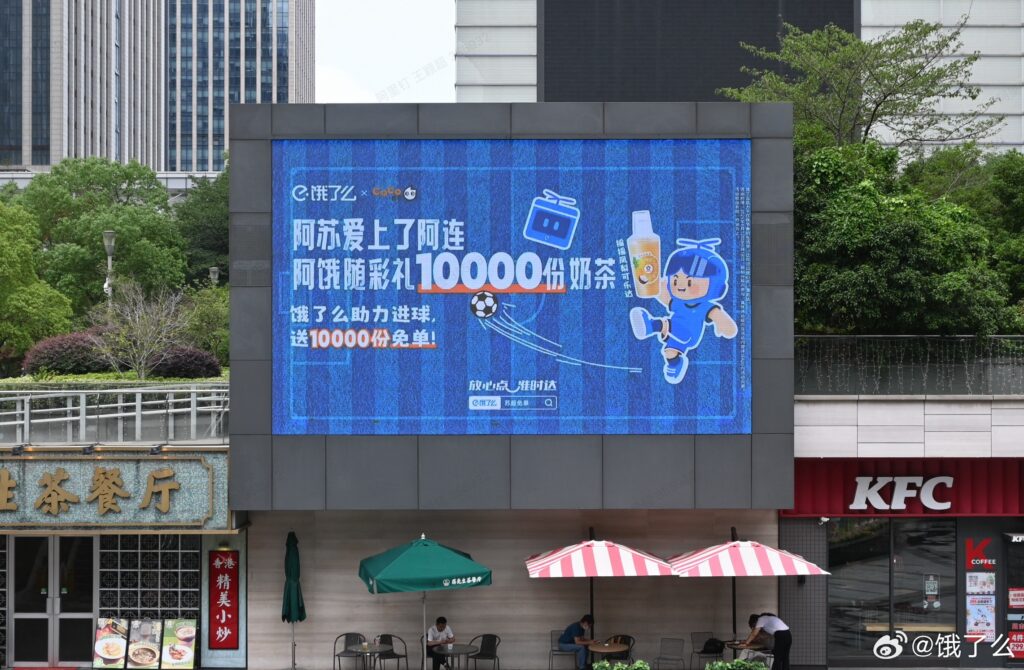
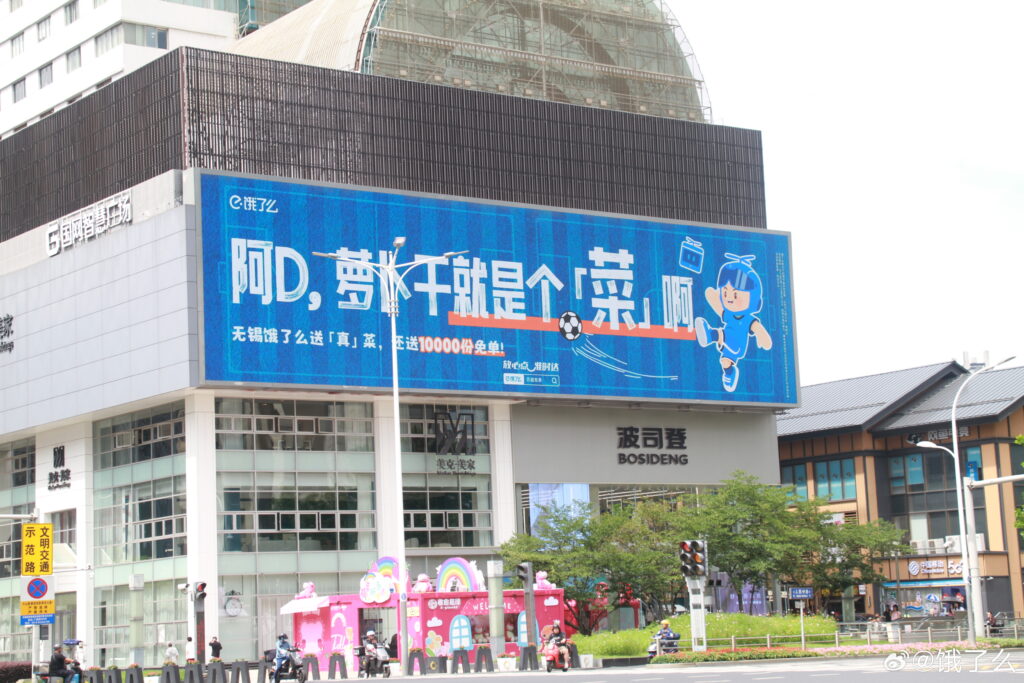
Other sponsors, from dairy brand Yili to a surprisingly small barbecue shop, all made their mark by joining the meme warfare.
Is city marketing back?
City marketing has become one of the hottest topics in recent years
City marketing has become one of the hottest topics in recent years, as local authorities look for ways to boost tourism to their cities. Zibo, Tianshui and Harbin have been among the most notable examples.
This was also a great opportunity for the cities, as well as Jiangsu as a whole, to build their brand, or, as the Chinese say, their “IP”. Since the league is long and the participating teams are diverse, it may avoid “one-trick” marketing, like Tianshui’s dependence on its malatang, and instead, like the more sustainable approach seen in Harbin, build multiple destinations. With the help of local governments, sponsors and locals, the “Su Super League” might just leave a long-lasting impression.




